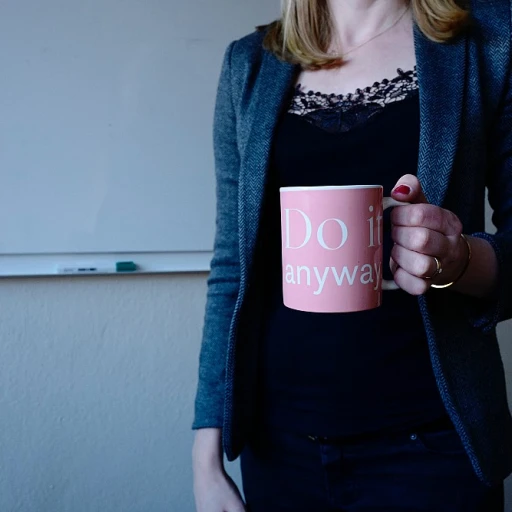
Understanding the Need for Upskilling in Sustainable Business
The Increasing Demand for Upskilling in Sustainable Business
In recent years, there has been a growing recognition of the need for upskilling within the context of sustainable business development. As industries worldwide seek to address the challenges of climate change and resource depletion, businesses are under increasing pressure to adopt sustainable practices. This shift is not only pivotal for environmental reasons but also, it makes business sense in a rapidly changing economy. Corporate sustainability and clean energy are now at the forefront of strategic planning for many companies, whether they are in real estate, consulting services, or renewable energy sectors. With organizations like the sustainability roundtable and enterprise roundtable leading discussions around energy procurement and sustainable business, the call for skilled professionals has never been louder.Why Upskilling is Essential
Several factors contribute to the urgency of upskilling in this domain:- Evolving Market Demands: As businesses pivot to align with sustainability goals, there’s a marked increase in demand for individuals skilled in sustainability management, renewable energy, and environmental services.
- Economic Viability: Sustainable practices are no longer just a regulatory checkbox. They are economically viable and beneficial, opening up more jobs in areas like development associate roles and renewable energy marketing.
- Business Performance: Companies focused on sustainability often witness not just regulatory compliance benefits but also improved client relationships and brand reputation, leading to enhanced market performance.
Addressing the Skills Gap
The current workforce in many sectors lacks the comprehensive skillset necessary for sustainable business strategies. This gap is evident across different roles, whether it’s an analyst in Boston or a corporate sustainability manager. As businesses like the sustainable business enterprise consortium buyers push for broader changes, employees must adapt through targeted upskilling initiatives. For those seeking to stay relevant and excel in this evolving landscape, mastering skill boss pro skills is invaluable. This approach facilitates a clear understanding of how to effectively navigate complex sustainability challenges, equipping professionals with the insights required for real world application.Key Skills for Sustainable Business Development
Essential Competencies for Driving Towards a Greener Future
As businesses pivot towards a more sustainable future, the set of skills required to drive this change has evolved. Understanding these key competencies is essential for professionals eager to make an impact in sustainable business development. Whether you’re a job seeker, senior analyst, or manager in the sector, recognizing these skills will help you stay ahead of the curve.
Sustainability doesn’t solely rely on passion but also on a comprehensive skill set. The growing demand for clean energy solutions, corporate sustainability initiatives, and environmental responsibility means that roles in renewable energy and sustainable business are becoming more specialized. Here are some crucial skills needed:
- Environmental and Renewable Expertise: Having a solid understanding of sustainable practices, renewable energy, and environmental science is fundamental. This knowledge equips professionals to devise and implement impactful sustainability strategies.
- Project and Business Management: The ability to manage sustainability projects and initiatives efficiently is critical. Skills in project management help keep initiatives on track and ensure business objectives align with corporate sustainability goals.
- Analytical Skills: For roles like a senior analyst or development associate, it's essential to interpret data effectively to make informed decisions. These skills also assist in understanding trends and opportunities within sustainable markets.
- Marketing and Communication: The capacity to communicate a business's sustainability efforts to stakeholders, clients, and the broader market is invaluable. Strong marketing skills help position a company as a leader in sustainable solutions and engage clients effectively.
- Leadership and Influence: A manager or business leader with the ability to inspire and influence others can drive the change needed towards sustainability. Leadership is about encouraging teams and members of the organization to commit to sustainable practices.
It's essential for organizations to identify these skills within their teams or seek professional development opportunities to close any gaps. Upskilling plays a vital role in honing these competencies; as explored by the Directorate of Staff Development, investing in skill enhancement consistently yields positive results for business enterprises.
Effective Upskilling Strategies
Building a Foundation for Skill Enhancement
In the realm of sustainable business development, effective upskilling strategies are crucial for staying ahead. As the demand for renewable energy and environmental management grows, businesses must ensure their workforce is equipped with the necessary skills. This involves a strategic approach to learning and development, focusing on both current needs and future challenges.
Customized Learning Paths
One of the most effective strategies is to create customized learning paths tailored to the specific needs of the business and its employees. This can involve a mix of online courses, workshops, and hands-on training sessions. For instance, a senior analyst in a Boston-based firm might benefit from courses in data analysis and climate science, while a marketing associate could focus on sustainable marketing strategies.
Leveraging Technology for Upskilling
Technology plays a pivotal role in upskilling. Online platforms and learning management systems provide flexible and accessible options for employees to enhance their skills. These tools can be particularly useful for remote teams or those involved in energy procurement and consulting services. By integrating technology, businesses can offer a more personalized and efficient learning experience.
Collaborative Learning Environments
Creating a collaborative learning environment can significantly enhance the upskilling process. This involves fostering a culture of continuous learning and encouraging employees to share knowledge and experiences. Participating in sustainability roundtables or enterprise roundtable discussions can provide valuable insights and networking opportunities for members and clients alike.
Measuring the Impact
Finally, it's essential to measure the impact of upskilling initiatives. This can be done through regular assessments and feedback from employees. By evaluating the effectiveness of training programs, businesses can make informed decisions about future investments in skill development. This approach not only benefits the individual but also contributes to the overall success of the business enterprise.
Role of Technology in Upskilling
The Technological Edge in Skill Enhancement
In the pursuit of maintaining sustainability within the business landscape, technology stands as a pivotal factor in facilitating effective upskilling strategies. By leveraging innovations, businesses can close the skills gap, transforming their workforce into a formidable asset that upholds the tenets of sustainable business practices.
Advanced tools and platforms aid professionals—whether they are analysts, managers, or development associates—in acquiring critical skills for climate-conscious roles. For instance, data analytics software allows environmental analysts to evaluate renewable energy trends efficiently, ultimately informing strategic management decisions.
Personalized Learning with Artificial Intelligence
Artificial Intelligence (AI) emerges as a game-changer, offering personalized learning paths that adapt to the skills and pace of individuals. AI systems can evaluate an employee's current competencies and suggest tailored modules that focus on the nuances of corporate sustainability, clean energy, and environmental management. As a result, learning becomes not only more engaging but also significantly effective, enhancing the integration of these skills into the corporate fabric of businesses from Boston and beyond.
Virtual Reality and Augmented Reality for Practical Training
Virtual and Augmented Reality technologies offer immersive experiences that enhance practical learning. These technologies benefit fields such as real estate and energy procurement, where hands-on experience in a virtual environment can seamlessly translate to real-world applications. For a sustainable business enterprise roundtable, this means upskilling initiatives that not only engage employees but also replicate complex scenarios where strategic decision-making is critical.
The Impact on Corporate Coaching
For business consulting services and energy-focused enterprises, the infusion of technology into upskilling initiatives also redefines corporate coaching methods. Technology-driven coaching tools allow mentors to offer real-time feedback, helping associates and executives refine marketing and client relations strategies in line with sustainable principles.
The use of technology extends beyond the basic skills acquisition, fostering a culture of continuous learning that aligns with the principles of sustainability. By staying abreast of, and integrating, these technological advances, business leaders, senior analysts, and even CEO founders can ensure their teams remain competitive and prepared to tackle the dynamic demands of a sustainable business environment.
Challenges in Upskilling for Sustainability
Navigating Barriers in Upskilling for a Sustainable Future
Upskilling for sustainable business development presents unique challenges, especially when integrating the demands of renewable energy, environmental stewardship, and corporate responsibility. These challenges often require insightful analysis to ensure that businesses remain competitive while adapting to the evolving climate dynamics. One significant hurdle is the rapid pace of technological development. Businesses must keep up with new sustainable practices, tools, and technologies, which often changes the scope of jobs within the industry. For instance, a manager in Boston's renewable energy sector may need to quickly adapt to cutting-edge energy procurement tools to remain efficient and effective. This transition can be overwhelming without proper support and guidance. Moreover, there is the issue of aligning upskilling initiatives with real-world demands. Companies often struggle to balance training resources between immediate needs and long-term sustainable goals. The consideration is not just on environmental factors but also on maintaining business continuity. Senior analysts frequently encounter this challenge when crafting strategic upskilling programs for enterprise roundtable discussions or consulting services. Members of sustainability roundtables may note the difficulty in equipping teams with skills that are not only relevant to current climate goals but also adaptable to future changes. This underscores the importance of consultancy services offered by firms focused on corporate sustainability, providing insights into emergent industry trends and facilitating up-to-date training programs for member clients. Adapting to changes in marketing and business management settings also demands continual learning. Development associates and marketing teams must use data-driven strategies to engage clients interested in sustainable and clean energy solutions. However, these strategies require skills that correlate with both technology advancements and consumer sustainability expectations. Lastly, there is often a need for cross-departmental collaboration within a company. Boyle CEOs or corporate executives might initiate community initiatives or engage with wider consortium buyers to drive sustainability agendas. However, fostering a culture of learning across various departments, from real estate to business marketing, can be a complex process. Though these challenges are robust, observing successful case studies in clean energy can serve as inspiration. As businesses navigate these obstacles, honesty and dedication to employee development remain pivotal in advancing corporate, sustainable, and environmental goals.Case Studies: Successful Upskilling Initiatives
Real-World Success Stories in Upskilling for Sustainability
Upskilling in sustainable business development is not just a theoretical concept; it has been effectively implemented across various sectors. Here, we explore some successful initiatives that have made a significant impact.
Renewable Energy Sector: A Case of Transformative Learning
In the renewable energy sector, companies have embraced upskilling to adapt to the rapidly changing landscape. A notable example is a Boston-based energy procurement firm that integrated comprehensive training programs for their employees. This initiative focused on enhancing skills in clean energy technologies and environmental management. As a result, the firm not only improved its service offerings but also positioned itself as a leader in corporate sustainability.
Corporate Sustainability: A Collaborative Approach
Corporate sustainability often requires a collaborative effort. A consortium of buyers, including major real estate enterprises, formed a sustainability roundtable to address the skills gap in sustainable business practices. By pooling resources, they developed a tailored training program for management and development associates. This program emphasized climate strategies and sustainable marketing, leading to improved business outcomes and stronger client relationships.
Consulting Services: Leveraging Technology for Upskilling
Consulting services have also seen a shift towards upskilling, particularly in the realm of technology. A senior analyst at a leading business consulting firm highlighted the role of digital tools in facilitating learning. By utilizing online platforms and virtual roundtables, the firm enabled its members to gain insights into the latest trends in sustainability and energy management. This approach not only enhanced the skills of their workforce but also attracted new clients seeking expertise in sustainable business development.
Enterprise Roundtable: Building a Sustainable Workforce
Finally, an enterprise roundtable focused on sustainable business development has been instrumental in fostering a culture of continuous learning. By organizing workshops and seminars, they have empowered employees to take ownership of their professional growth. This initiative has been particularly beneficial for those in managerial roles, enabling them to lead their teams effectively in the pursuit of sustainability goals.
These case studies demonstrate that upskilling is a vital component of sustainable business development. By investing in their workforce, companies can not only meet the demands of the modern business environment but also contribute to a more sustainable future.













